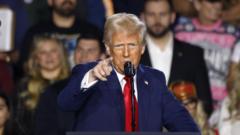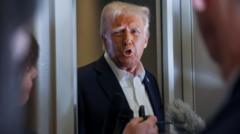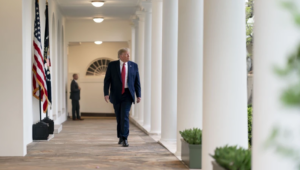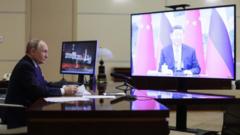President Joe Biden is reportedly poised to reject Nippon Steel’s proposed $14.9 billion acquisition of US Steel, a significant decision anticipated to thwart the merger. This resolution comes after an extensive assessment by the Committee on Foreign Investment in the United States (CFIUS), which ultimately did not reach a consensus and referred the matter to Biden last December.
Biden Set to Block Nippon Steel's $14.9 Billion Acquisition of US Steel

Biden Set to Block Nippon Steel's $14.9 Billion Acquisition of US Steel
Concerns over national security may jeopardize US-Japan diplomatic relations as President Biden prepares to reject a major steel merger.
According to sources from The Washington Post, an announcement regarding Biden's decision could arrive as early as this Friday. Senior advisors have cautioned against potential diplomatic repercussions with Japan, a crucial ally of the United States, especially given the current reliance on Japan's support in counteracting China's regional influence.
A rejection of the deal reflects the administration’s focus on protectionism masked as national security concern. Although safeguarding domestic industries is critical, critics argue that excluding foreign investment from allies like Japan could hinder international partnerships. The steel sector holds significant weight in national defense and infrastructure, positioning it at the heart of the administration's strategy to intensify scrutiny over foreign investments.
The anticipated decision has already prompted immediate market reactions, with US Steel shares declining 7.8% in pre-market activities; meanwhile, Japan’s stock market remained stable due to a public holiday. However, the repercussions could extend beyond mere stock fluctuations. Nippon Steel, one of the largest steel manufacturers globally, plays a vital role in international supply chains. This potential blockage might convey to other allies that the U.S. is adopting a more isolationist stance concerning foreign investments.
Should Biden proceed with this decision, it could create tensions in US-Japan relations at a crucial juncture when diplomatic cohesion is essential. Tokyo has historically been a reliable ally for Washington, and a move perceived as prioritizing economic nationalism could complicate future cooperation on mutual challenges in the Asia-Pacific region.
As the deadline approaches, critical questions remain about whether this action is a necessary precaution for national security or a shortsighted strategy that may alienate essential partners. Detractors contend that Biden's approach could ultimately weaken the strategic interests it intends to safeguard.
A rejection of the deal reflects the administration’s focus on protectionism masked as national security concern. Although safeguarding domestic industries is critical, critics argue that excluding foreign investment from allies like Japan could hinder international partnerships. The steel sector holds significant weight in national defense and infrastructure, positioning it at the heart of the administration's strategy to intensify scrutiny over foreign investments.
The anticipated decision has already prompted immediate market reactions, with US Steel shares declining 7.8% in pre-market activities; meanwhile, Japan’s stock market remained stable due to a public holiday. However, the repercussions could extend beyond mere stock fluctuations. Nippon Steel, one of the largest steel manufacturers globally, plays a vital role in international supply chains. This potential blockage might convey to other allies that the U.S. is adopting a more isolationist stance concerning foreign investments.
Should Biden proceed with this decision, it could create tensions in US-Japan relations at a crucial juncture when diplomatic cohesion is essential. Tokyo has historically been a reliable ally for Washington, and a move perceived as prioritizing economic nationalism could complicate future cooperation on mutual challenges in the Asia-Pacific region.
As the deadline approaches, critical questions remain about whether this action is a necessary precaution for national security or a shortsighted strategy that may alienate essential partners. Detractors contend that Biden's approach could ultimately weaken the strategic interests it intends to safeguard.






















